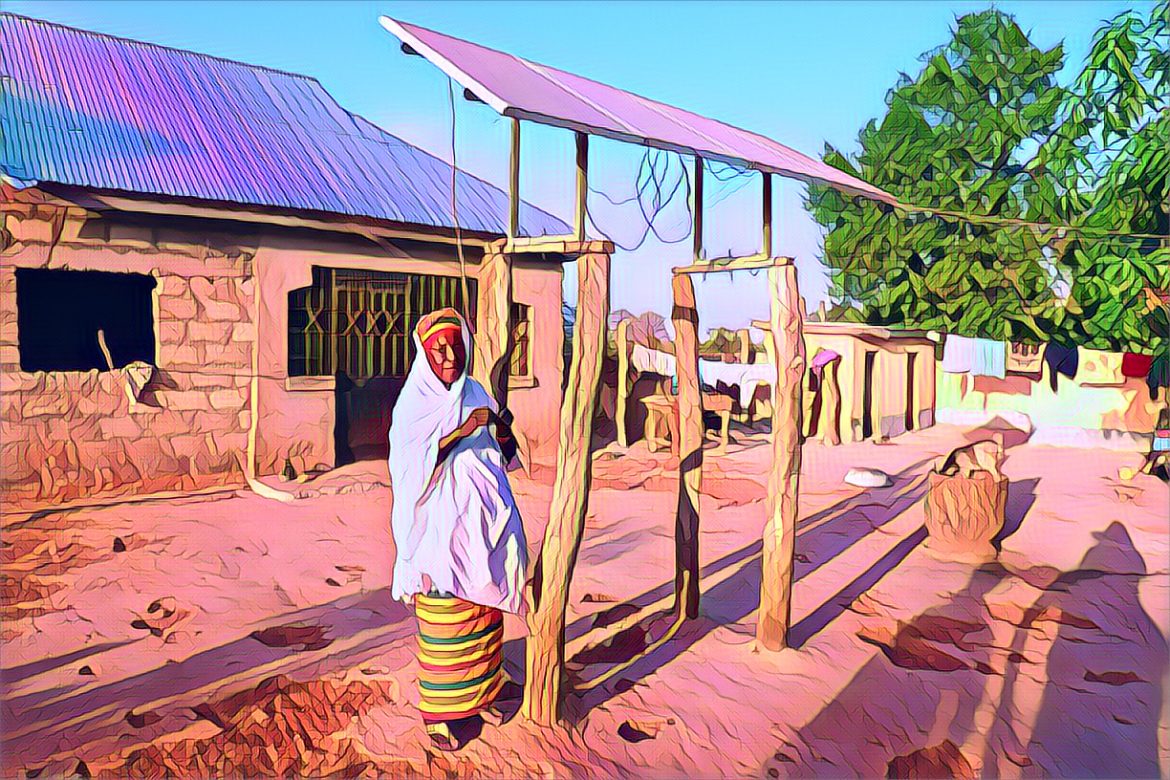In remote Ghana villages, elderly women called “solar grandmothers” are bringing light and change. With support from the UNDP Global Environment Facility Small Grant Programme (UNDP GEF-SGP), these women are becoming solar engineers in their communities. Dakota, Salamatu, and Afia, all in their 60s, are among these inspirational solar grandmothers. They, along with two other women from their region, led the successful electrification of 150 households in their off-grid communities.
The journey to becoming solar engineers began when these women were selected to receive training at the Barefoot College in India, with support from UNDP’s GEF-SGP. Traditionally, communities in Ghana without access to electricity relied on kerosene lanterns to light their homes, which posed environmental and health risks. The solar grandmothers saw an opportunity to make a difference.
Dakota, reflecting on their initial fears, stated, “When they selected us to go to India, we were afraid because we have never traveled abroad before. Our biggest fear was that we only speak our local language and haven’t been to school, so going to school in another country sounded odd.” Despite their apprehensions, these women embraced the challenge, driven by their determination to bring light to their homes and communities. Leaving their region and country for the first time in their lives, they embarked on a six-month practical training program in applied solar technology at Barefoot College.
Given their lack of formal education, the women were taught using sign language and color-coded circuits. They learned to build solar-powered lamps and chargers and to install solar power systems in their communities. Salamatu expressed the joy that comes with bringing light to their homes, saying, “Everyone is happy with us because we have connected several homes to electricity. It is such a great joy to have light, charge our phones, watch TV, and do other basic things with the power.”
The UNDP GEF-SGP solar power initiative aligns with Sustainable Development Goal (SDG) 5, which calls for gender equality and the empowerment of women and girls at all levels. This initiative is part of a broader forest conservation project, which includes initiatives aimed at empowering women, such as dry-season vegetable farming and shea butter processing.
The choice of older women as solar engineers stems from their rootedness in their communities. While men and young people may migrate in search of other opportunities after training, older women tend to stay, serving as a stable force in their villages. Afia, one of the solar grandmothers, explained their role: “We have been installing solar power for houses that need it and maintaining it. Maintenance mostly requires changing fuses or batteries.”
These women have also passed on their knowledge to their children, who assist with installations. Salamatu shared, “I trained my youngest son, who used to help me, but now he has gone to school in the city. He supports me when he comes for vacation.” Ghana has made significant strides in electricity access, with an access rate of 86.63 percent, according to the World Bank’s 2021 data. However, there remains a need to bridge the gap, particularly in rural areas. The success story of the solar grandmothers serves as inspiration and a model for replication.
The adoption of solar energy in these communities not only reduces fossil fuel consumption and pollution but also promotes healthier living conditions and benefits the environment. Approximately 3,000 liters of kerosene, once consumed monthly, have been replaced by solar lights. Mobile phone usage has increased, and schoolchildren can now study in the evening with the help of solar-powered lights.
To ensure that all remaining communities can emerge from the darkness and gain access to affordable, reliable, sustainable, and modern energy, public-private partnerships are crucial. Such collaborations can unlock investments and facilitate the expansion of solar power initiatives, ultimately improving the lives of countless people and contributing to a greener planet.





1 comment
Thanks for sharing. I read many of your blog posts, cool, your blog is very good.